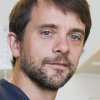
is a professor at the Center for Integrative Genomics of the UNIL. He is internationally recognized for his work on pancreatic beta cells, in particular the molecular characterization of Glut2, and of the receptor for GLP-1, the target for the newest T2D drugs. He is now focusing his research activities on the interaction between brain glucose sensing cells and the regulation of the peripheral tissues controlling glucose homeostasis, with a specific interest in the regulation of insulin and glucagon secretion. He was Vice-President of the EASD (2013-2015) and is a member of the Swiss National Science Foundation Research Council. He received several awards, including the 2009 EASD Albert Renold Award and the 2017 EASD Claude Bernard Award; he is the recipient of a second ERC Advanced Grant.


